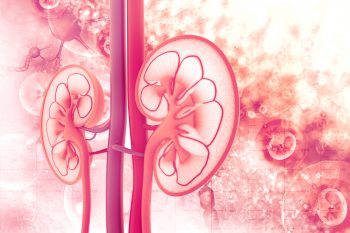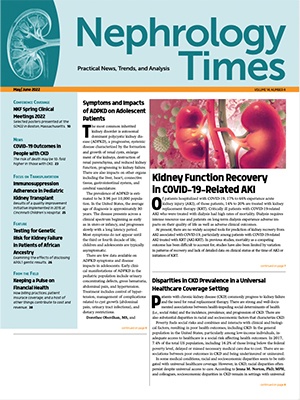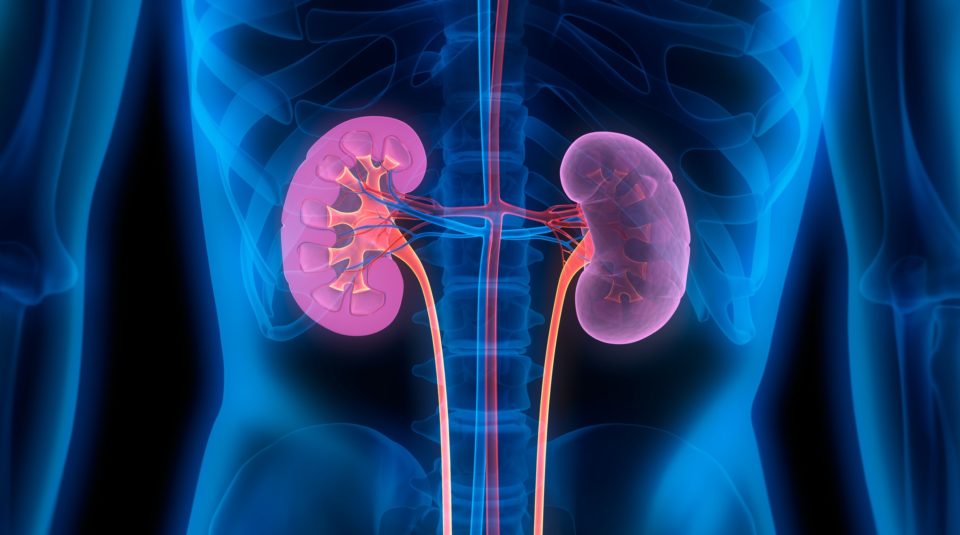
In approximately 30% of patients with advanced stages of chronic kidney disease (CKD), the kidney processes that excrete the daily acid load from diet and metabolism to maintain homeostasis are no longer adequate, leading to metabolic acidosis. Adverse effects of chronic metabolic acidosis in CKD include muscle wasting, bone demineralization, hyperkalemia, and more rapid CKD progression.
Anita Vincent-Johnson, MD, and colleagues reported on the influence of metabolic acidosis as a health risk in patients with CKD. The report appeared in Advances in Chronic Kidney Disease [doi:org/10.1053/j.ackd.2022.05.002].
Acting on concerns regarding nutrition and bone disease, early guidelines from the Kidney Disease Outcomes Quality Initiative called for treating metabolic acidosis with alkali therapy with a target serum bicarbonate of ≥22 mEq/L. More recently, guidelines have suggested similar targets based on potential slowing of progression of CKD.
However, according to Dr. Vincent-Johnson et al, there are few data from appropriately powered, long-term, randomized controlled trials examining the efficacy and safety of alkali therapy for those outcomes. As a result, there are variations in clinical practice, contributing to the complexity of treating metabolic acidosis in patients with CKD in real-world practice settings.
“Novel treatment approaches and rigorous phase 3 trials may resolve some of this controversy in the coming years,” the researchers said. “Metabolic acidosis is an important complication of CKD, and where it ‘falls’ in the priority schema of CKD care will depend upon the generation of strong clinical evidence.”







 © 2025 Mashup Media, LLC, a Formedics Property. All Rights Reserved.
© 2025 Mashup Media, LLC, a Formedics Property. All Rights Reserved.